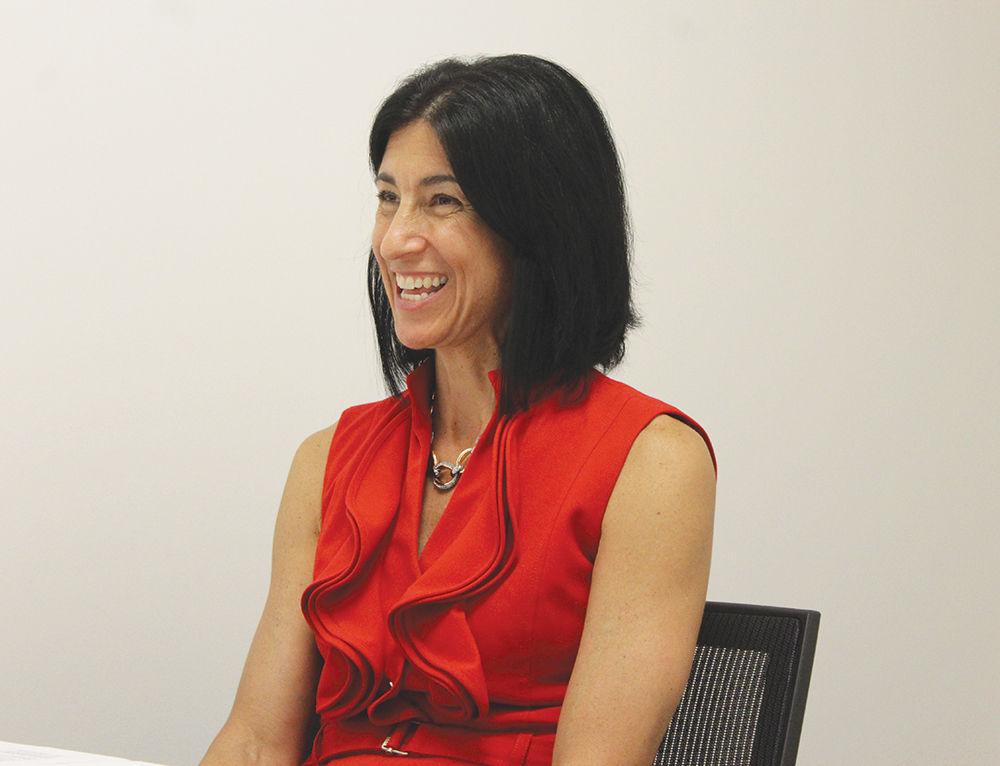There are a lot of required credits that bemuse college students — why does a statistics major need to take biology? Why does a horticulture major need to take sociology? But one thing virtually every college student wants to do upon graduation is secure a good job. Thanks to a special class, Senior Career Transitions, taught by Marcy Bullock, NC State’s director of professional development, students can add a few credit hours to their schedule that they won’t have to struggle to apply to real life.
“The goal of the course is to help students transition successfully to the professional world,” Bullock said. “They’ve been a student pretty much their whole life — 21 years — and now they’re putting on a new identity and going out into the job market.”
“We want them to have the tools they need to secure the position that they’re most interested in, and to do well in that position once they start,” Bullock added.
Manasa Chitluri, a graduate student who took Senior Career Transitions as a senior and is now a teaching assistant for one section of the class, was very positive about her experience with the class.
“One of the books that we had, ‘Life After College’ […] really helped me because it not only taught me about budgeting but it also really helped me learn about 401(K)s, how I could invest my money to make myself more secure in the future […] those were things that I knew about but didn’t really think about before I started taking the class,” Chitluri said.
Chitluri said that the class is also designed to help students discover how to balance their life once they have secured that dream job.
“The class focuses on learning how to manage your expectations and learning how to manage your lifestyle and the work that you do to create the balance that you want,” Chitluri said.
Bullock said she think it’s full of success stories every single week.
“There are a lot of competencies that students aren’t experiencing in their lives as students but they will need in the professional world,” Bullock said.
One unique aspect of the course is that students craft a personalized semester goal that is an ongoing project of sorts in the class.
“At the beginning of the semester, they set a career goal, and say what they want to accomplish by May, and then we just hold them accountable to that and support them in any way that we can,” said Prem Shah, a senior studying mathematics and statistics and Senior Career Transitions teaching assistant.
Thus far, about 60 percent of students have accomplished their goals, which range from landing a job or an internship to improving networking skills and beyond.
Students have an additional layer of support and accountability in what is called a “master minds” group: the students are separated into small groups by major or intended career field, and meet at the beginning of class once a week to discuss their progress on class assignments. The broad variety of assignments in the class spreads from creating LinkedIn profiles to designing a hypothetical budget based on a hypothetical salary and place of residence.
Another one of the primary assignments is preparing for and attending mock interview days, a critical and often neglected skill for emerging professionals, many of whom may not have had instruction to build on their experience.
“You might have had interviews, but you might not have gotten feedback, and never improved,” Shah said.
Additionally, the class helps students look critically at how their career goals and personal values align.
“That’s what I love about this class, it just forces everyone to reflect,” Bullock said.
While Bullock and her colleagues think it’s incredibly important to equip students to get jobs, they also want to help students evaluate whether or not they are pursuing the right kind of job in the first place, based on their desired lifestyle and what is most important to them.
While taking Senior Career Transitions offers a plethora of professional development opportunities, students have many other options available to them as well. There is another course, Career Explorations, also taught by Bullock, which is targeted at freshmen and sophomores and focuses more strongly on identifying a career of interest than on attaining an existing goal.
But while not everyone has the time for an entire course, there are still abundant resources for those who are looking for career assistance.
Bullock recommends checking out the resources of the Career Development Center to take advantage of the many opportunities that all NC State students can use at any time.
“Even if you’re not in a class, just use the Career Development Center,” Bullock said. “We have assessments on our webpage, students can then meet with their counselor and interpret it to get an idea what their goal would be.”
The Career Development Center also just launched the Career Identity Program, a blend of assessments, workshops and one-on-one counseling to help freshmen develop a clear, concrete plan to achieve their goals.













